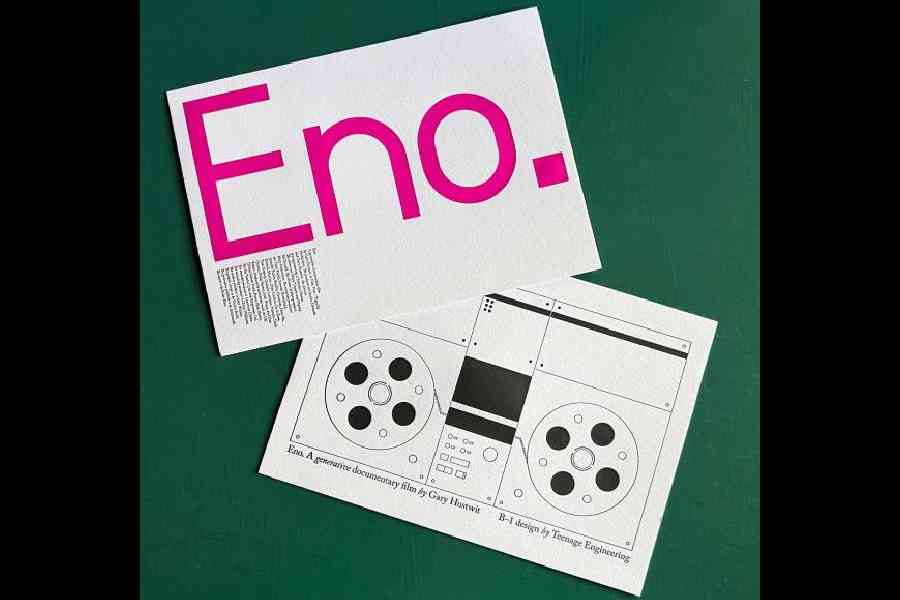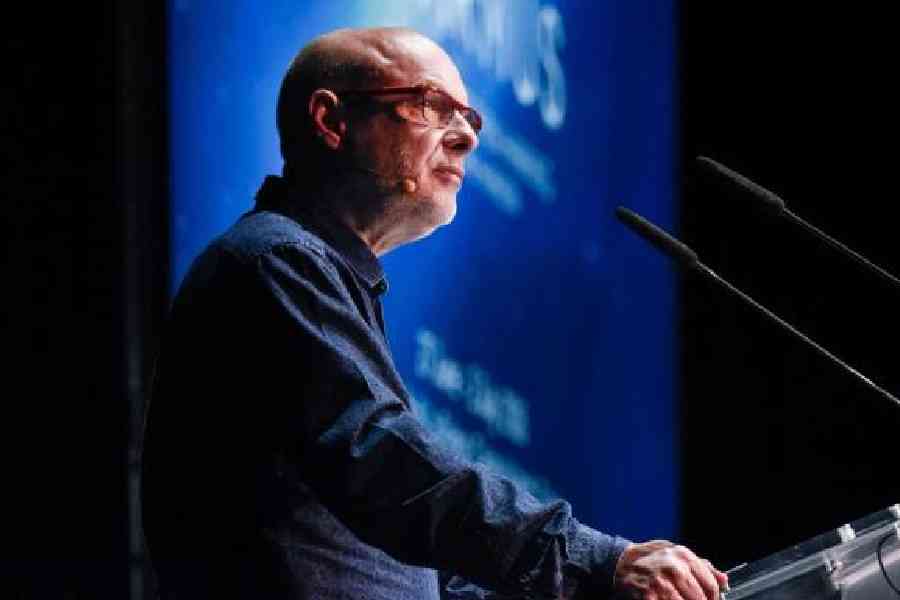Think of Brian Eno and you will think of an intimidating list of collaborators that redefined pop: Roxy Music, David Bowie, Talking Heads and U2. Of course, we can’t forget Eno, the pioneer of the ambient music genre.
The producer, musician, technologist is at the heart of a new documentary titled Eno. Each showing of the movie at the ongoing Film Forum in New York has a different version. According to its makers, this is “the first generative feature film”, which means pieces of it will change shape and structure with every viewing because of some clever software implementation from director Gary Hustwit and Brendan Dawes.
“The generative approach was something that was really organic to what he’s done,” Hustwit told South China Morning Post on the pairing of subject and form. “He’s been very much an early adopter [of] new technology and ways to integrate it into the creative process. So approaching a movie about him that way made sense.”
Eno is moulded from 30 hours of interviews and 500 hours of film with certain pieces weighted to be more likely to appear. According to The New York Times, there are 52 quintillion possible versions of Eno.
The musician was chosen as the subject because Hustwit had Eno do the soundtrack for his film Rams. Back then Hustwit had asked Eno: “Well, why isn’t there a documentary about you? Why isn’t there a career-spanning, epic documentary about you, Brian?” Soon he found out that Eno doesn’t like bio documentaries. Around this time, he was working with his friend Brendan Dawes, a digital artist and coder, trying to experiment with what a generative film could be.

Two new letterpress mini-posters for Gary Hustwit’s generative documentary Eno
Certain scenes can be made to arrive during specific sections while an overall shape to the film could be maintained, though the order and selection of material changes each time a new version gets generated.
We associate the word “generative” with artificial intelligence but what we see on Eno is slightly different. The film runs on a code-based decision tree that often takes a new path, created for the software named Brain One (an anagram for Brian Eno), which is programmed by Dawes. It generates a new version of the film on the fly each time the algorithm is deployed.
What does the musician think of generative AI, especially when we look back at the recent writers and actors strike in Hollywood? The musician has told the Los Angeles Times: “We don’t know how any decisions are arrived at. If you think from the moment you get up in the morning, you turn the tap on to make a pot of tea, you don’t know where the water comes from, you don’t know how it’s processed, you don’t know how plumbing systems work. You don’t know where the tea comes from. You don’t know how the retail organisations work, and so on and so on. So we should be completely used to the idea of not being in control in that way. So that’s one objection to AI which I think we can disregard.”











